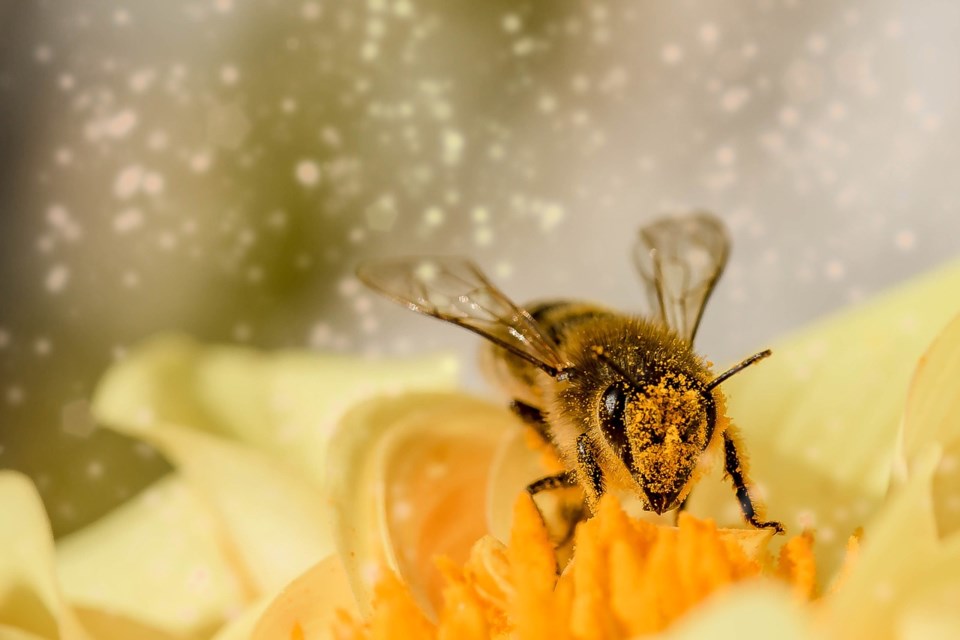Are bees really dying? Are humans the cause, or the solution?
These are the questions UBC professor Leonard Foster will discuss at a free public talk hosted by Genome BC in Richmond Wednesday.
Honeybees are integral to Richmond’s economy because they’re necessary for pollinating two of the city’s popular crops: cranberries and blueberries.
“Basically, you can’t make money growing these commercially if you don’t bring in honeybees for pollination,” Foster told the Richmond News.
Honeybees aren’t native to North America; they were brought over by humans. There aren’t many in the wild here, you’ll usually only see them in beekeepers’ hives.
Other insects such as butterflies and bumblebees can pollinate crops too. But, on a commercial scale, honeybees are the most effective pollinators because beekeepers can bring hundreds of thousands of them into a field to get the job done, Foster explained.
However, honeybees are facing health challenges that make it difficult to field enough of them to accommodate Lower Mainland farming needs.
Alan Wong, spokesperson for the Richmond Beekeepers Association, said members reported losing up to a third of bees in their colonies last winter.
“It’s definitely a challenge to keep our bee colonies alive,” he said.
Things like viruses, Varroa mites and Nosema (a fungal infection), kill bees every year.
That’s where Foster hopes his research will help. In his UBC lab, he aims to understand how bees fight off infection and uses those findings to help direct beekeepers’ breeding programs.
But keeping pathogens at bay isn’t the only thing honeybees need to stay alive. Foster said they also need to avoid environmental hazards like pesticides. If farmers do choose to use pesticide, Foster asks that they be smart about it and spray after bee colonies have pollinated, not before.
“Pesticides are one of the reasons we lose hives,” Wong said, adding some Lower Mainland beekeepers refused to fulfill pollination contracts last year over concerns pesticides were making their bees sick.
Alternatively, Foster said, fruit-growers can choose transgenic crops imbued with pest-killing genes instead of spraying fields.
If you’re not a farmer, Foster said, the best thing you can do is buy local honey.
“That makes the whole beekeeping industry more buoyant and profitable. Ultimately, it helps keep better bees and more available for crop pollination.”
Foster’s talk begins at 7 p.m. Wednesday at the John MS Lecky UBC Boathouse at 7277 River Road. You can register for a free ticket through Eventbrite.



.jpg;w=120;h=80;mode=crop)